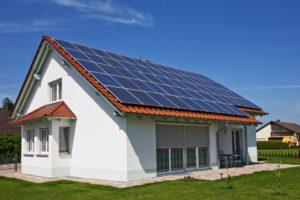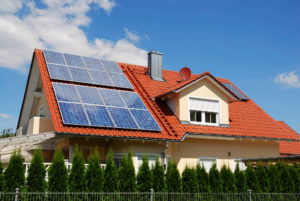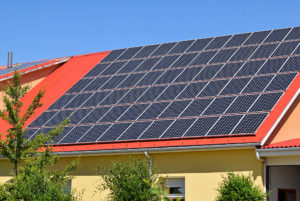The demand for solar power is growing rapidly, presenting significant opportunities for entrepreneurs in the solar sales industry. This comprehensive guide aims to provide you with detailed insights and strategies to sell solar panels effectively. Whether you’re an experienced solar installer looking to expand your business or an aspiring salesperson entering the solar industry, this article will equip you with the knowledge and tools needed to thrive in the competitive solar sales market.
Contents
- 1 Key Takeaways
- 2 Understanding the Solar Sales Industry
- 3 Starting Your Solar Sales Business
- 4 Selling Solar Panels: Strategies and Techniques
- 5 Marketing and Lead Generation
- 6 Closing the Sale and Providing Customer Support
- 7 Scaling Your Solar Sales Business
- 8 Expert Insights From Our Solar Panel Installers About Selling Solar Panels
- 9 Experience Solar Excellence with Us!
- 10 Conclusion
Key Takeaways
- Understand the solar sales industry, including the benefits of solar energy and market analysis, to position and sell solar panels effectively.
- Start your solar sales business by developing a solid business plan, obtaining necessary licenses, and building a skilled sales team.
- Implement effective sales techniques, leverage online and local marketing strategies, provide exceptional customer support, and explore business growth and scaling opportunities.
Understanding the Solar Sales Industry
The Benefits of Solar Energy
Solar energy offers numerous benefits for homeowners and businesses alike. By emphasizing these advantages, you can effectively communicate the value of solar panels to potential customers. These benefits include:
- Cost Savings: Solar panels reduce electricity bills by generating clean, renewable energy, providing long-term savings for homeowners and businesses.
- Environmental Impact: Solar energy helps reduce carbon emissions and contributes to a cleaner, greener environment.
- Energy Independence: Solar panels enable homeowners and businesses to generate power, reducing reliance on traditional energy sources and utility companies.
Market Analysis and Trends
Conducting thorough market research and staying updated on industry trends is crucial for success in the solar sales industry. Consider the following factors:
- Target Market: Identify your ideal customer base, including residential homeowners, commercial businesses, or specific industries such as agriculture or hospitality.
- Government Incentives: Stay informed about federal, state, and local incentives encouraging solar panel adoption, such as tax credits, rebates, and grant programs.
- Emerging Technologies: Stay abreast of new developments in solar technology, including advancements in panel efficiency, energy storage solutions, and smart home integration.

Starting Your Solar Sales Business
Developing a Business Plan
Creating a comprehensive business plan is essential for laying the foundation of your solar sales venture. Consider the following elements:
- Market Analysis: Research your target market, including demographics, energy consumption patterns, and competitors.
- Unique Selling Proposition: Identify what sets your solar sales business apart from the competition, such as exceptional customer service, specialized expertise, or exclusive partnerships.
- Financial Projections: Determine your pricing structure, profit margins, and sales forecasts to assess the feasibility of your business and attract potential investors or financing.
Licensing and Legal Considerations
Before launching your solar sales business, ensure compliance with local licensing and legal requirements. Consider the following:
- Business Licenses: Check with your local government for the necessary permits and licenses to operate a solar sales business.
- Certification and Training: Obtain relevant certifications, such as the North American Board of Certified Energy Practitioners (NABCEP) certification, to demonstrate your expertise and build customer trust.
- Contracts and Agreements: Develop legally binding contracts for solar panel installations, ensuring clarity on warranties, maintenance, and financing terms.
Building a Sales Team
Building a strong sales team is crucial for scaling your solar sales business. Consider the following steps:
- Hiring Sales Professionals: Recruit sales representatives with excellent communication skills, a strong understanding of solar technology, and a passion for renewable energy.
- Training and Development: Provide comprehensive training on solar technology, sales techniques, objection handling, and industry regulations to empower your sales team.
- Performance Incentives: Develop commission structures or performance-based incentives to motivate your sales team and reward exceptional performance.

Selling Solar Panels: Strategies and Techniques
Identifying Potential Customers
To effectively sell solar panels, target your marketing efforts towards potential customers who can benefit the most from solar energy. Consider the following strategies:
- Demographic Analysis: Analyze data on demographics, energy consumption patterns, and property characteristics to identify potential customers.
- Targeted Marketing: Utilize digital marketing techniques such as search engine optimization (SEO), pay-per-click (PPC) advertising, social media marketing, and content marketing to reach your target audience effectively.
- Partnerships and Referrals: Collaborate with local contractors, real estate agents, and industry influencers to generate referrals and expand your customer base.
Effective Sales Techniques
Implementing effective sales techniques is essential for closing deals and achieving sales targets. Consider the following strategies:
- Consultative Selling: Adopt a consultative approach by understanding customers’ energy needs, assessing their property suitability for solar panels, and customizing solutions to meet their specific requirements.
- Demonstrating Value: Highlight the financial benefits of solar panels, including long-term cost savings and increased property value. Use tools like energy savings calculations and return on investment (ROI) analyses to demonstrate the value proposition.
- Building Trust: Establish credibility and trust by showcasing customer testimonials, case studies, and certifications. Address common objections and concerns with transparent information and evidence.
Overcoming Objections
Addressing customer objections is crucial to closing sales and overcoming hesitations. Consider the following strategies:
- Financial Objections: Provide financing options, such as solar loans or leasing agreements, to address upfront cost concerns. Explain the long-term cost savings and return on investment that solar panels offer.
- System Performance and Maintenance: Educate customers about the durability and reliability of solar panels. Address concerns regarding maintenance by emphasizing warranties and available maintenance packages.
- Perceived Complexity: Simplify the process by guiding customers through installation, interconnection procedures, and any necessary paperwork. Provide clear and concise explanations to ease their concerns.

Marketing and Lead Generation
Online Marketing Strategies
Establishing a strong online presence is crucial for attracting potential customers and generating leads. Consider the following strategies:
- Professional Website: Develop a user-friendly website showcasing solar solutions, customer testimonials, and educational content. Optimize it for search engines to improve visibility in online searches.
- Content Marketing: Create informative blog posts, videos, and guides that educate potential customers about solar energy, system benefits, and cost savings. Share this content through your website and social media channels to establish your expertise and attract organic traffic.
- Social Media Engagement: Leverage social media platforms to engage with potential customers, share valuable content, and showcase your solar projects. Use targeted advertising to reach specific demographics and expand your reach.
Local Marketing and Networking
Building a local presence is crucial for establishing credibility and generating referrals. Consider the following strategies:
- Local Partnerships: Collaborate with contractors, builders, or home improvement businesses to create mutually beneficial referral partnerships.
- Community Engagement: Participate in local events, green fairs, and trade shows to showcase your solar solutions and engage with potential customers face-to-face.
- Customer Referral Programs: Implement customer referral programs to incentivize satisfied customers to recommend your services to their friends, family, or colleagues.

Closing the Sale and Providing Customer Support
Negotiating and Closing Deals
Effective negotiation skills are vital for closing solar panel sales. Consider the following strategies:
- Customized Proposals: Tailor proposals to meet customers’ specific needs and preferences, considering system size, financing options, and available incentives.
- Financing Assistance: Support and guide in navigating financing options, including available tax credits, rebates, and financing programs.
- ROI Calculations: Demonstrate the long-term financial benefits of solar panels by calculating energy savings, payback periods, and return on investment for customers.
Post-Sale Support and Customer Satisfaction
Delivering exceptional post-sale support is crucial for customer satisfaction and referrals. Consider the following strategies:
- Timely Installation: Ensure efficient and professional installation services, adhering to agreed-upon timelines.
- System Performance Monitoring: Offer monitoring services to track performance and promptly address issues.
- Maintenance and Warranty Packages: Provide packages to ensure optimal system performance and address potential maintenance needs. Communicate warranty terms and provide ongoing customer support.

Scaling Your Solar Sales Business
Expanding Sales Channels
Consider diversifying your sales channels to sell more solar panels and expand your business. Explore the following strategies:
- Online Sales: Set up an e-commerce platform to sell solar panels online, reaching customers beyond your local area.
- Partnerships with Home Builders: Collaborate with home builders to offer solar panel installations for new construction or renovation projects.
- Community Solar Projects: Participate in community solar initiatives, where multiple customers collectively invest in a solar project and share the benefits.
Enhancing Customer Education
Investing in customer education initiatives can help drive sales and build trust. Consider the following approaches:
- Educational Workshops and Webinars: Conduct workshops or webinars to educate potential customers about solar energy, system components, and installation.
- Energy Audits: Offer energy audits to assess customers’ energy consumption and demonstrate potential cost savings with solar panels.
- Transparent Information: Provide clear and comprehensive information about available incentives, financing options, and system performance to empower customers in decision-making.
Building Strong Relationships
Building strong relationships with customers is crucial for long-term success. Consider the following strategies:
- Customer Loyalty Programs: Implement loyalty programs to reward repeat customers or those who refer new clients.
- Ongoing Communication: Regularly communicate with customers to address questions, provide system updates, and offer additional services or upgrades.
- Follow-up Surveys: Conduct post-installation surveys to gather feedback and identify areas for improvement. Use this feedback to refine your sales and customer support processes.
Expert Insights From Our Solar Panel Installers About Selling Solar Panels
Understanding the unique needs and concerns of each customer is key to selling solar panels. Tailoring your approach and demonstrating real-world benefits can make all the difference.
Senior Solar Engineer
Building trust through transparency and education helps customers feel confident in their investment in solar energy. This industry thrives on informed decisions.
Solar Installation Specialist
Effective communication and follow-up are essential. Keeping clients informed throughout the sales and installation process ensures satisfaction and fosters long-term relationships.
Renewable Energy Consultant
Experience Solar Excellence with Us!
Trust in Solar Panels Network USA, where our seasoned experts deliver top-quality solar solutions for homes and businesses nationwide. With a legacy of countless successful installations and a commitment to sustainable energy, we’re your reliable partner in the solar journey. Ready for a brighter, eco-friendly future? Call us now at (855) 427-0058 and harness the power of the sun!
Conclusion
Selling solar panels requires a comprehensive understanding of the industry, effective sales techniques, and strategic marketing. You can establish a successful solar sales business by developing a solid business plan, building a knowledgeable sales team, and leveraging various marketing channels. Prioritize customer satisfaction, provide ongoing support, and stay up-to-date with industry trends and incentives to remain competitive. With dedication and the right strategies, you can contribute to the widespread adoption of solar energy and positively impact our environment.
About the Author
Solar Panels Network USA stands at the forefront of solar energy solutions, driven by a team of seasoned solar engineers and energy consultants. With over decades of experience in delivering high-quality solar installations and maintenance, we are committed to promoting sustainable energy through customer-centric, tailored solutions. Our articles reflect this commitment, crafted collaboratively by experts to provide accurate, up-to-date insights into solar technology, ensuring our readers are well-informed and empowered in their solar energy decisions.

